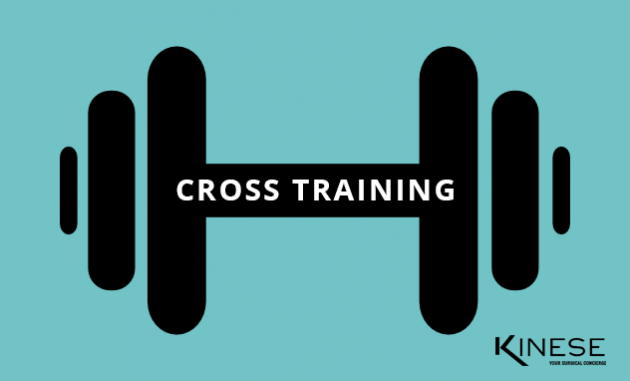The Benefits of Cross Training

Part Four: Cross Training
In sport, an athlete’s top objective is to maximize the body’s potential with the ultimate goal of achieving flawless performance. Athletes commit large sums of time, effort, energy, and money in order to master their sport and achieve perfection. Yet all too often, athletes fall victim to preventable sports-related injuries that can easily delay or even eliminate achieving athletic perfection.
As part of our series on Injury Prevention for Athletes, we have taken a closer look at some of the unique components associated with preventing athletic injuries. Going outside the regularity of sport-specific routines with cross training is one area athletes can easily pursue in order to prevent injury. Cross training utilizes exercises and drills outside of what is commonly associated with a particular sport.
Preventing Overuse Injuries
Mixing up athletic routine and incorporating elements of cross training into an exercise plan can have many benefits, including preventing common injuries caused by overuse of ligaments, tendons, joints, bones, and muscles. The American Orthopedic Society for Sports Medicine encourages cross training to prevent overuse injuries and to provide the body with a “total body tune-up.” In many instances, cross training is not the innate inclination for athletes focused on their individual sport. An athlete’s natural motivation, desire and dedication toward competition and performance can often leave him/her trapped in a repetitive cycle of actions that directly match the specific sport being performed. Take for example a cyclist; this endurance athlete can easily ignore elements of cross training and just focus on putting more miles in the saddle, as this is the directly correlated practice as it relates to his/her sport of choice. However, by simply incorporating other movement patterns and exercises to a training plan (check out our Proper Physical Conditioning blog) the body becomes less susceptible to obtaining repetitive movement injuries. In addition, cross training can be an effective way to rest the body and balance an athletes overall fitness and reduce or reverse muscular imbalances that may have resulted from solely training within the realm of the primary sport. An effective cross training program should always be implemented by a trained coach or athletic professional who is familiar with an individual’s existing training habits and specific athletic endeavor.
Avoiding Burnout
Put simply, implementing a cross training program can help athletes avoid burnout within their respective sport. Most humans are naturally stimulated by variety; this is no different for athletes dedicated to their sport. Breaking free from sport-specific activity can provide athletes with an opportunity to refresh themselves by taking part in something different and unique. Cross training can make the training process more enjoyable and can even enhance motivation. By breaking free from the monotony of the same sport-specific training pattern, burnout is avoided and enthusiasm toward an athletic passion is maintained.
Kinese is a company that facilitates surgical experiences for those who desire a deeper level of personalized explanation, treatment and care. We believe our clients deserve immediate access to the very best minds in medicine without having to negotiate the bureaucratic, complex and flat-out confusing systems that surround the greater healthcare market. Alongside our physicians, we promise to deliver the highest standard of care available.
